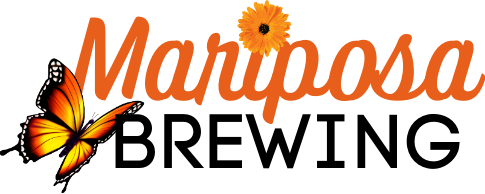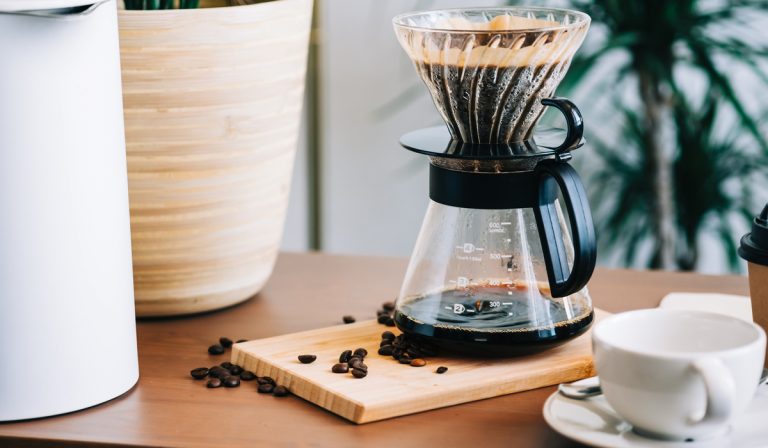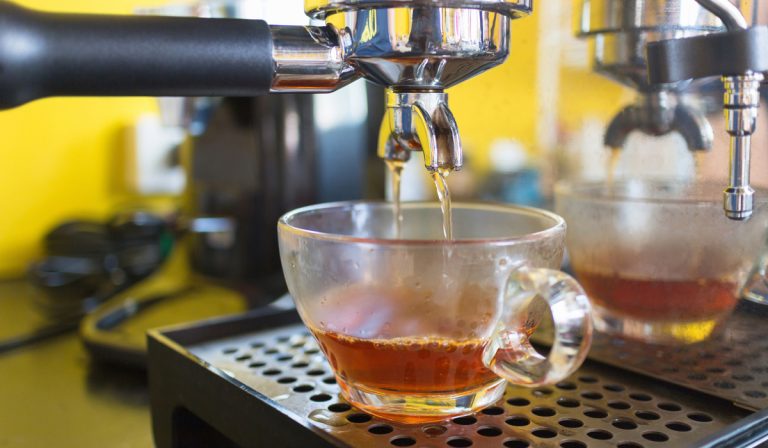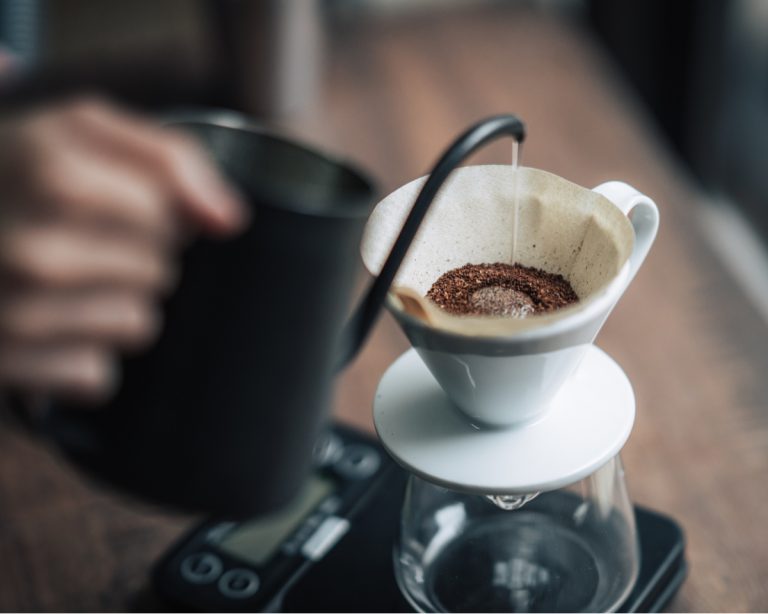Does Brewing Tea Longer Increase Caffeine? (14 Truths and Myths!)
If the strength of your tea varies each time you brew it, you may have wondered if the brewing time affects caffeine levels. Well, let’s find out.
Does brewing tea longer increase caffeine content?
Brewing tea longer does increase caffeine. When you steep tea for longer, the water extracts caffeine extensively from the leaves. So, the tea produced will contain more caffeine.
However, be wary not to brew tea for too long, else you may end up with a bitter product.

If you only just started drinking tea, you’ll find a lot of information on tea. But while some of it may be true, some is merely mythical. Below, we discuss 14 truths and myths about tea and tea brewing. Read on to inform yourself better.
Table of Contents
6 Truths
1. True Teas Are Not Naturally Caffeine Free
Most herbal teas (tisanes) are naturally free of caffeine.
But any tea made from parts of the tea plant – Camellia sinensis, which includes black, green, and white tea varieties, is never naturally caffeine-free.
Apart from Camellia-derived teas not being naturally caffeine-free, decaf teas originating from the same are not 100% free of caffeine. They still contain some caffeine, even if it is lower than usual.
2. Teas That Grow in Shade May Have More Caffeine
In general, shade-grown teas contain more caffeine than teas that get more sunlight. This pattern is a stress response induced by the limited presence of sunlight in the plant.
Basically, the plant produces more caffeine, chlorophyll, and L-theanine to offset the lack of sunlight.
3. Caffeine Levels Vary Across Tea Varietals
While there are many tea varietals, two get most of the attention. They are Assamica and Sinesis.
Across all the tea varietals you will come across, you may find that some have more caffeine than others.
Generally, Assamica – grown primarily in Assam, India – offers the highest caffeine. Contrarily, China’s tea varietals #1 and #2, which are white tea varietals, typically have lower caffeine content.

4. Brewing Temperature Also Affects Caffeine Level
As we already said, brewing your tea longer increases caffeine levels. But apart from that, brewing at higher water temperatures also increases caffeine levels. So, depending on how much caffeine you want in your tea, you can vary the water temperature for brewing.
5. The Size and Quantity of Tea Leaves Affect Caffeine Levels
Besides water temperature and brewing time, the size and quantity of tea leaves affect caffeine levels. Understandably, if you use more tea leaves in brewing, you will most likely get more caffeine.
Beyond the above, the smaller the size of tea leaves, the more caffeine you can extract while brewing. This is why broken tea leaves brew faster and more efficiently than whole tea leaves. This is also why teabags, which typically contain broken tea leaves, brew better than whole leaves.
Basically, broken tea leaves have more surface area than whole leaves. So, the water spreads to them faster and deeper, making extraction quicker and more extensive.
6. Blended Teas Typically Produce Lower Caffeine Levels
Tea leaves are sometimes blended with other ingredients for reasons such as flavor and taste. However, blended tea leaves produce lower caffeine levels than unblended tea leaves.
Note that blending does not reduce caffeine levels in tea leaves. However, the overall ratio of tea leaves in the product drops when tea makers combine tea leaves with other ingredients to produce the same quantity of tea.
In other words, 100 grams of unblended tea leaves will have more leaves than 100 grams of blended tea leaves. So, if you steep both in the same volume of water, the unblended one will definitely offer more caffeine.
8 Myths
1. Black Tea Offers the Most Caffeine
You may have come across talks about black tea being the tea type with the most caffeine. However, this is far from the truth. The claim is a generalization that should not be continued.
Various factors influence the amount of caffeine in tea. Factors like processing method, the origin of the leaves, cultivation method, cultivation period, and the size of the leaves in the brew all influence how much caffeine a cup of tea has.
So based on the factors above, green tea and possibly white tea can offer more caffeine than black tea. At the same time, black tea from different locations or even the same location may offer different caffeine levels.
2. Steep Black Tea Longer Than Green Tea
You may have also heard that you must steep black tea longer than white tea and green tea. But this is basically a hasty generalization.
How long you steep any kind of tea depends on factors like tea leaves size, water temperature, and water volume.
As you may already know, if the tea leaves of any type of tea are small, extraction happens faster. So, you only have to steep for a few minutes. But if the leaves are whole, steeping may take longer.
Similarly, if the water is not hot enough for any type of tea, steeping will take longer. But if the water is sufficiently hot, the steeping time would be shorter.
Then if you brew with more water, the steeping time would be shorter than when you brew with less water.
3. Boiling Water Will Burn Delicate Tea
The general statement that claims that water at high temperatures or boiling water will burn delicate tea is not precise.
Truly, some delicate green or white teas offer better taste and flavor when brewed with cooler water. But not all white or green teas are the same; some will benefit from brewing with water at higher temperatures.
Instead of thinking boiling water will burn delicate tea, have it at the back of your mind that a hotter brew produces darker and stronger tea. Then a cooler brew will give sweeter and milder tea.
With the above in mind, you can adjust the water temperature of your brew to suit the flavor and taste you want.
You can start with higher brewing temperatures, then bring it down gradually if the brew does not suit your desire.

4. Green Tea Is Healthier Than Other Types of Tea
Claims that green tea is the healthiest type of tea are not uncommon. However, they are not factual either.
When the proponents make claims that green tea is the healthiest, they say things like, “green tea has low caffeine.” But as we said before, any type of tea can have high or low caffeine levels. It all depends on planting region, leaf size, planting method, processing method, and much more.
These people also say green tea is the healthiest because it contains a lot of antioxidants. Well, the antioxidant bit is true. However, studies on these antioxidants are not conclusive enough to claim that green tea is healthier than other tea types.
Of course, this is not to say the antioxidants in green tea are not beneficial. But then, their potential is often blown out of proportion. In other words, green tea is not a miracle cure.
5. Drinking Tea Alone Can Make You Lose Weight
While it is true that caffeine can suppress appetite and raise metabolism, drinking tea alone will not make you lose weight. It may help when you employ it alongside caloric adjustments/restrictions.
Weight loss is more sensitive to net caloric intake than any other thing. So, if your metabolism rises and your appetite drops but your net caloric intake is still high, you will not lose weight.

6. Herbal Teas Are Caffeine-Free
You may have heard that herbal teas (tisanes) are caffeine-free. Well, unlike true teas, most herbal teas, which are made from plants other than Camellia varietals, are truly caffeine-free. But making a blanket statement that herbal teas are caffeine-free is misleading.
Some herbal teas are not caffeine-free. Interestingly, those herbal teas that are not caffeine-free typically have high levels of caffeine.
So, imagine you were trying to avoid caffeine by opting for tisanes, but you came across one of those with high levels of caffeine. You will end up getting a significant dose of what you didn’t want in the first place.
It is more accurate to say most herbal teas are caffeine-free. It is even better to indicate that caffeinated herbal teas typically have high levels of caffeine.
7. White Tea Is Caffeine-Free
The claim that white tea is caffeine-free is also very misleading. As we said before, no true tea from Camellia sinensis is naturally caffeine-free. So, white tea, which is made from the newest leaves of tea plants, definitely has caffeine.
However, the caffeine content of white tea may or may not be high, depending on some of the factors we mentioned before.
One may believe this myth because white tea is not very bitter. People think that the bitterness of tea indicates caffeine. So, since white tea is typically not bitter, they may think it has little or no caffeine. But this is not true.
The bitterness of tea comes from tannins, not caffeine. So, the minimal bitterness of white tea does not indicate the absence of caffeine.
8. You Can Decaffeinate Tea by Steeping It for a Few Seconds
There are claims that you can decaffeinate your tea by doing the following:
- Steep the leaves for around 30 to 60 seconds.
- Discard the ensuing tea.
- Then brew again for decaf tea.
This claim is inaccurate. You cannot decaffeinate tea by steeping tea leaves for less than one minute.
Resources
- https://www.zesttea.com/blogs/zest-blog/does-steeping-tea-longer-increase-the-caffeine
- https://www.thespruceeats.com/factors-influencing-caffeine-levels-in-tea-765275
- https://www.seriouseats.com/tea-myths-caffeine-health-benefits-green-organic-tea
- http://fridayknowstea.blogspot.com/2020/07/10-common-tea-myths.html
- https://www.artfultea.com/tea-wisdom-1/caffeine-in-tea







